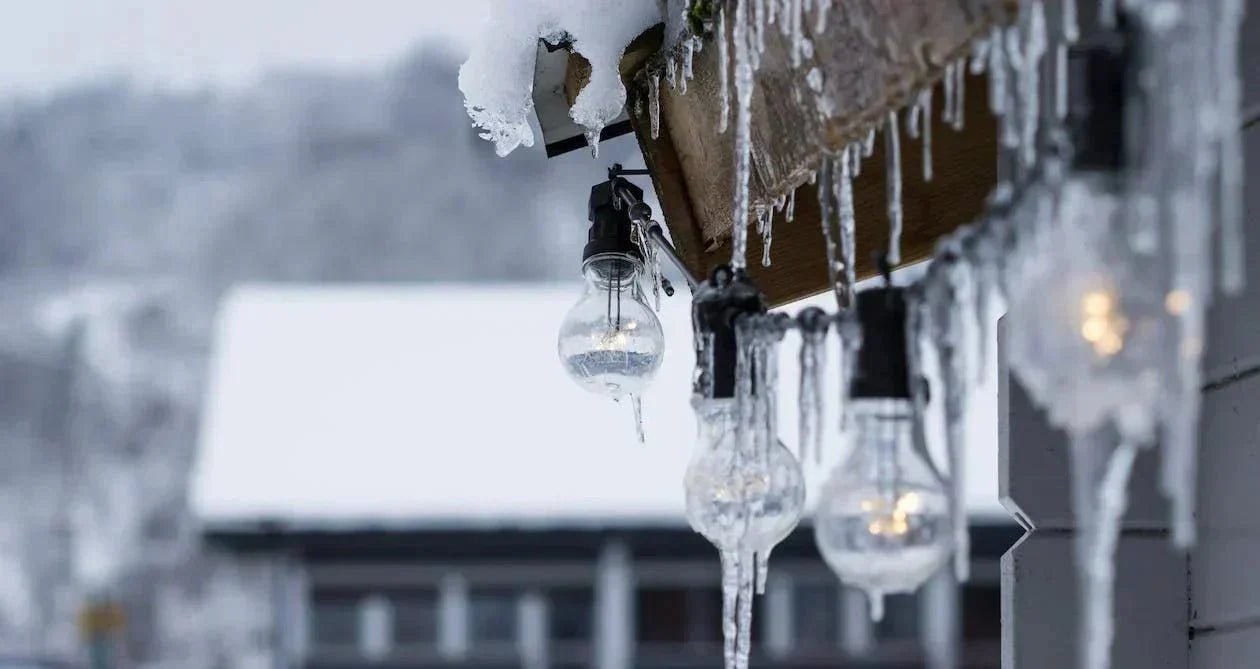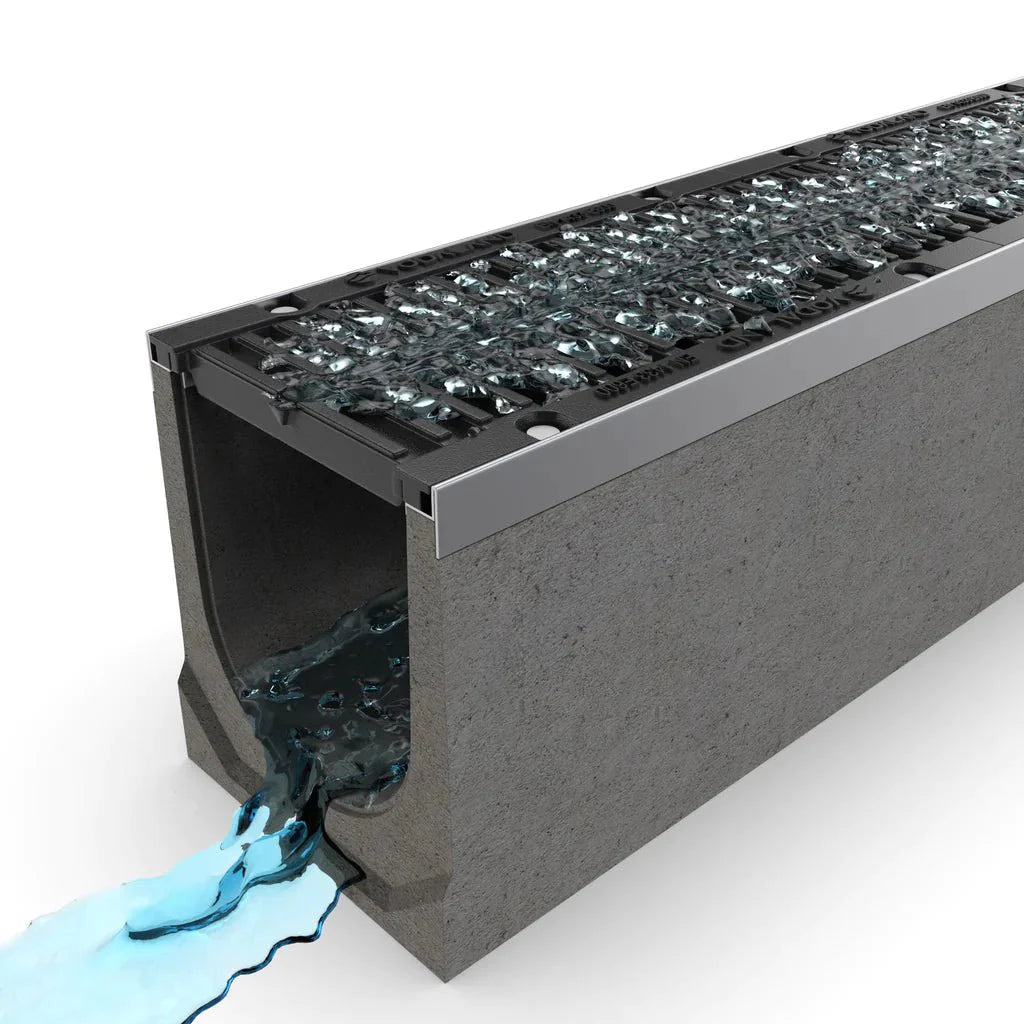Maintaining effective drainage systems during the cold winter months is essential for preventing a slew of potential issues. In regions where freezing temperatures are a regular occurrence, ensuring that trench drains remain functional is paramount.
As a seasoned expert in drainage solutions, Vodaland understands the unique challenges that cold weather presents for drainage systems. This article will delve into strategies for preventing trench drains from freezing during winter, ensuring water flow and proper drainage even in the harshest weather conditions.
Understanding Trench Drains and Their Function
Trench drains, commonly referred to as channel drains, play a crucial role in the overall drainage infrastructure of properties. These drains are designed to proficiently handle the management of surface water runoff, ensuring that it doesn't pool in vulnerable areas.
Operating as efficient conduits, trench drains capture water through elongated grates or openings that run the length of the drain. The collection of excess water is then channeled through an underground piping system, diverting it away from surfaces prone to water-related damage or accidents. This sophisticated drainage solution not only prevents the accumulation of standing water, which could lead to structural deterioration and safety hazards, but also aids in maintaining the aesthetic appeal of outdoor spaces.
Potential Areas of Freezing in Trench Drain Systems
The onset of freezing temperatures poses a considerable risk to trench drain systems, particularly in components like gutters, drain pipes, and PVC pipes. As temperatures drop, the water held within these elements becomes susceptible to freezing, causing a series of adverse consequences like blockages and constriction of water flow.
The formation of ice within these confined spaces not only disrupts the efficient drainage process but also amplifies the likelihood of structural harm. The expansion of freezing water can lead to cracks and fractures within the drain components, further compromising their functionality.
Problems Caused by Trench Drain Freezing
The repercussions of trench drain freezing can be multifaceted and far-reaching. The accumulation of ice obstructing the water flow within these drains can result in the creation of stagnant water pools, which in turn become fertile grounds for potential safety risks, such as slips and falls. Particularly in regions characterized by colder climates, the freezing of standing water within trench drains can escalate the situation further.
The expansion that occurs as water freezes can exert immense pressure on the surrounding components, including a property or home's foundation, leading to issues like foundation upheaval and other forms of structural deterioration. This process, if unmitigated, can eventually compromise the stability and integrity of the entire property. As such, the consequences of trench drain freezing go beyond mere drainage issues, underscoring the importance of employing preventive measures to circumvent these issues and protect both the infrastructure and the people on the property.
Strategies to Prevent Trench Drain Freezing

Implementing effective strategies for preventing and mitigating trench drain freezing is paramount to maintaining the functionality and safety of drainage systems, especially in areas that experience sub-freezing temperatures.
Proper Insulation
First and foremost, proper insulation plays a pivotal role. Insulating trench drain components, including gutters, drain pipes, and PVC pipes, helps to retain heat and prevent the formation of ice. This insulation can be achieved using specialized materials that offer thermal protection against freezing temperatures.
Adequate Slope Design
Incorporating an appropriate slope design within the drainage system structure is a crucial element in ensuring efficient water flow, effectively reducing the potential for water accumulation and subsequent freezing. This well-calibrated slope encourages water to swiftly move through the drain, preventing the formation of stagnant pools that could otherwise freeze and impede the drainage process.
Heat Tracing Systems
Installing heat tracing systems can also prove highly effective in combating freezing issues caused by the winter weather. These systems involve installing electric heating cables along the length of trench drains. These cables generate controlled heat, preventing water from freezing and consequential ice buildup within the drains and ensuring uninterrupted water flow.
Debris Clearing and Maintenance
Maintenance is an ongoing task that becomes even more critical during the winter months. Colder climates demand vigilant upkeep to keep trench drains clear of snow, ice and other debris. Regularly clearing debris from grates and ensuring that drain openings remain unobstructed is essential to prevent water backup and ice formation. Applying de-icing agents can further aid in maintaining open pathways for water flow. Having an adequate slope design within the drain structure is another factor that can help facilitate proper water flow and minimize the likelihood of water pooling and subsequent freezing.
Vodaland's Solutions for Winter Drainage Challenges
Vodaland USA stands as a reliable partner in conquering winter drainage challenges. Our comprehensive range of trench drain solutions is meticulously designed to thrive in cold weather environments. Through the integration of materials resistant to cold weather conditions, innovative insulation methods, and advanced engineering, our trench drain systems are purpose-built to counteract the challenges posed by freezing temperatures.
By providing non-corrosive materials, pre-slope options, and robust sealant products, we offer a holistic approach that not only combats freezing issues, but also maintains the safety of your property and protects it from structural damages.
Ensuring Winter-Ready Drainage with Vodaland
Safeguarding property integrity and averting safety risks hinge on efficient winter drainage. Vodaland's channel drain system solutions empower you to adeptly navigate the drainage complexities that arise in cold weather conditions.
By delving into our diverse trench drain offerings, seeking guidance from our experienced professionals, and embracing proactive measures, you can confidently fortify your property against the challenges of winter. This holistic approach ensures your space remains secure, moisture-free, and fully operational throughout the winter season.




Leave a comment
This site is protected by hCaptcha and the hCaptcha Privacy Policy and Terms of Service apply.